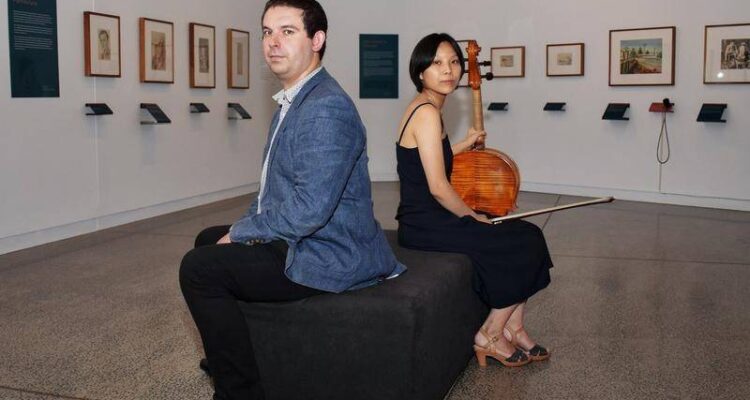The musical notes were scrawled on bits of toilet paper, tissue and card, sitting silent in a bundle for decades.
A folder of the scribbled manuscripts was handed to the organist at a suburban Sydney church, who gave them to his daughter, violist and historical music academic Nicole Forsyth.
She was overwhelmed when she looked inside: “It was incredible, it was a whole chapter of 20th century Australian history.”
The package contained the compositions of Max-Peter Meyer, one of more than 2000 men shipped to Australia on the Dunera at the beginning of World War II, considered “enemy aliens” by the British government.
Many onboard were in fact Jewish refugees who fled to Britain from Nazi-occupied Europe, along with Italian and German prisoners of war. There were eminent artists, writers, philosophers and musicians among them.
The men and boys endured abysmal conditions during their two-month journey on the Dunera, as they were beaten and abused by British soldiers, who allowed them only 30 minutes of fresh air and light each day.
Meyer composed a mass onboard the ship, and music and art continued to be a salve when the men were taken to internment camps in Hay, in western NSW, and Tatura, in northern Victoria.
The internees, who became known as the “Dunera boys”, set up unofficial universities, and established choirs and orchestras.
Read the article by Stephanie Gardiner in The Maitland Mercury.

